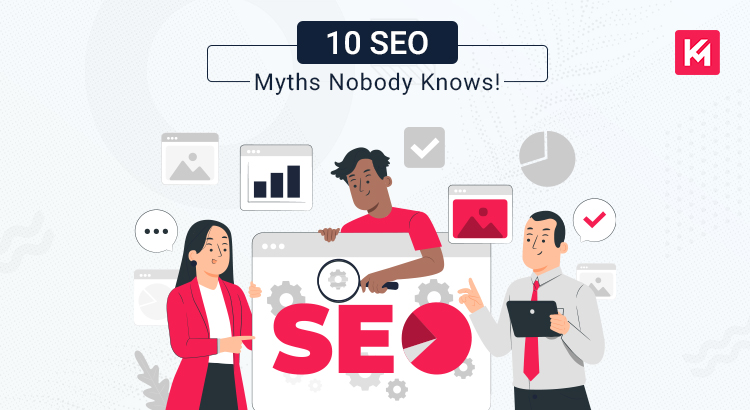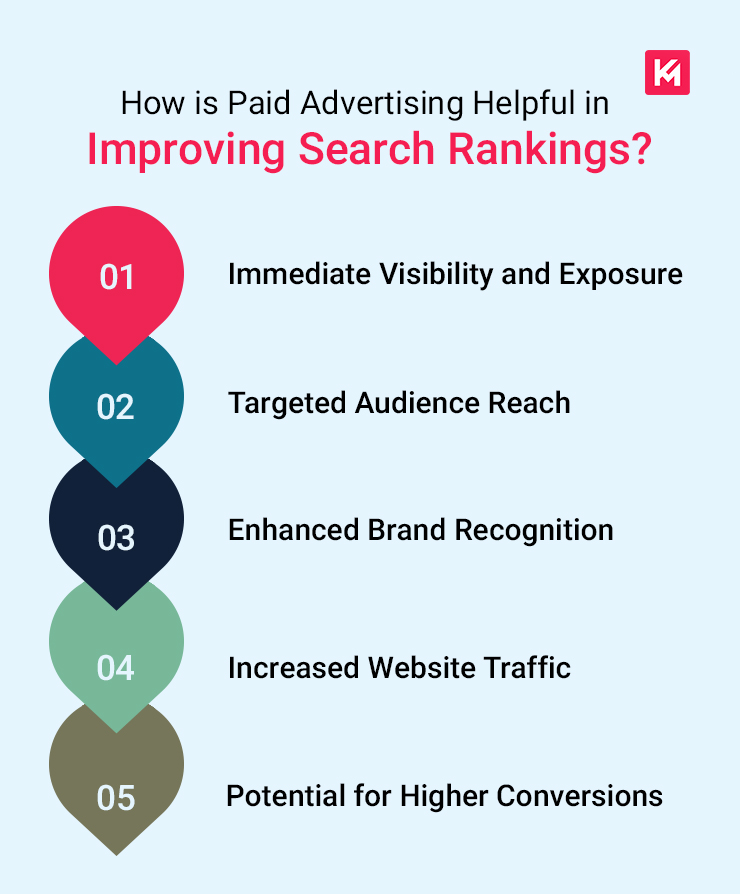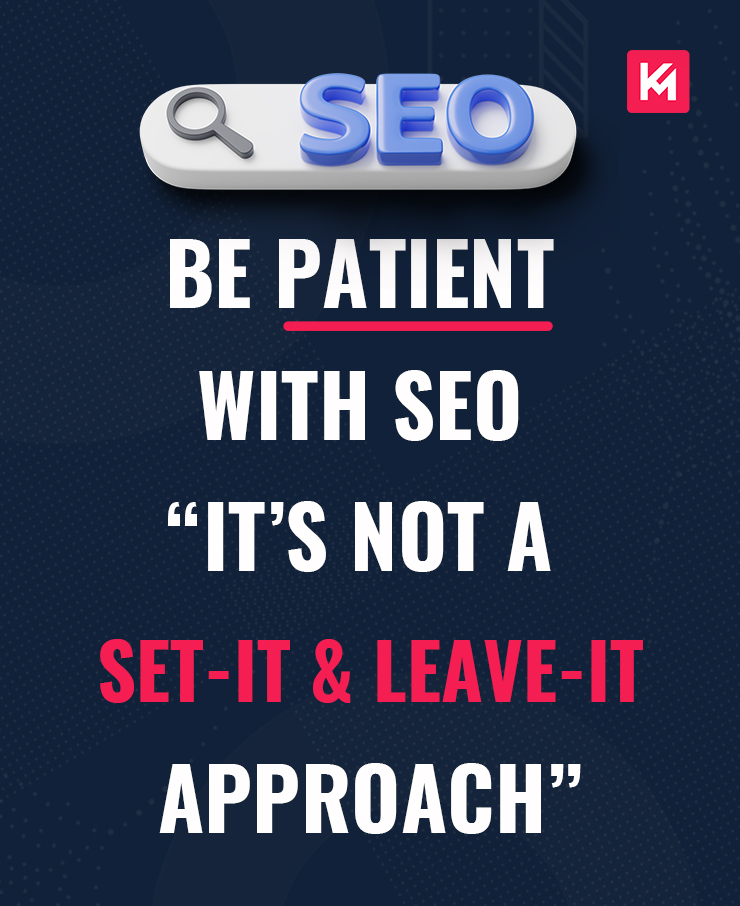Did you know that 93% of online experiences begin with a search engine? This statistic makes it evident why appearing on the first page of a search engine matters so much for websites. SEO executives employ a variety of techniques to rank #1 on the first page of SERP. In the race to appear on the first page of SERP, they sometimes forget to consider whether the techniques they rely on are myths or facts. To save you from confusion, Kinex Media is here with SEO myths that SEO executives must never follow.
Myth 1: “Keyword stuffing is the key to SEO success.”
There was a time when keyword stuffing was considered an effective tactic. However, with the continuous evolution of search engines, this practice has become malicious. While it was once considered valuable in the past, it is no longer effective in today’s search engine world. So, if somebody suggests stuffing keywords into your content to boost your website’s ranking, don’t trust them. It has become a myth.
Fact: Embed keywords while keeping the right density in mind. Keyword stuffing deteriorates the user experience, and Google strictly opposes this practice. Those who still believe in incorporating this tactic may end up facing penalties from Google.
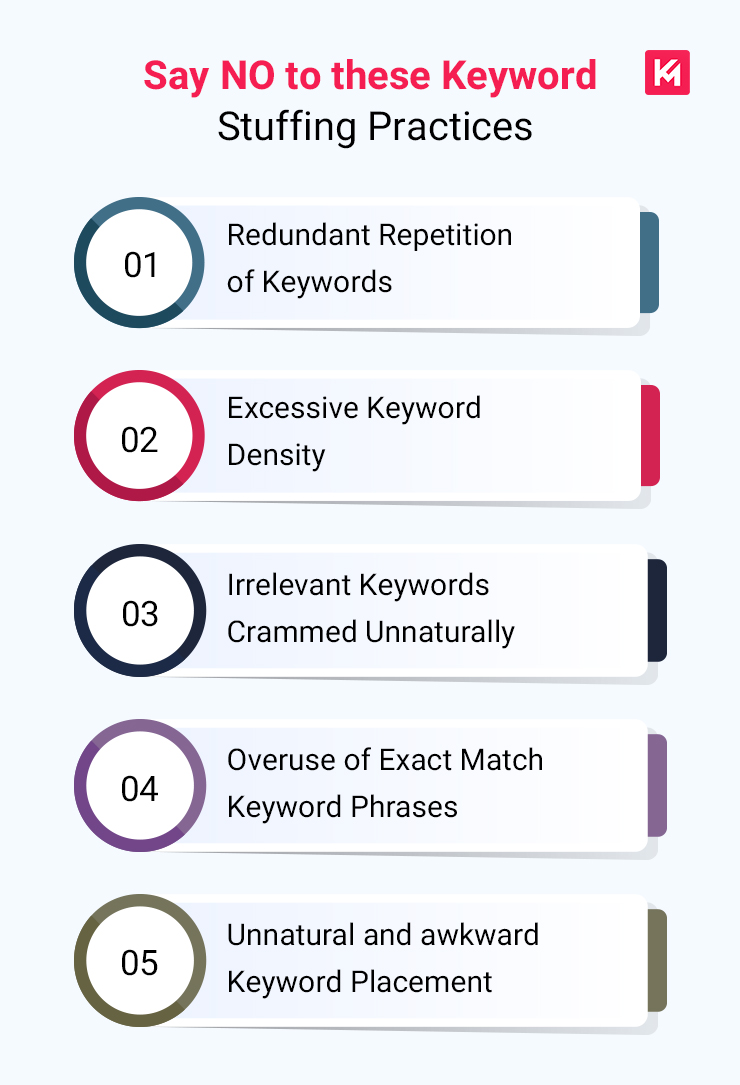
Myth 2: “Working on Meta Tags is a WASTE OF TIME.”
By meta tags, we mean title tags and meta descriptions. Though it does not impact search engine rankings directly, it plays a significant role in driving engagement and click-through rates.
Did You Know?
Google only picks up the metadata that you’ve given, if it is appropriate. Otherwise, it goes through the content and picks up the most suitable line that describes what your webpage is all about. Google is wizardry, No?
Fact: It is the meta title and description that persuades users to click on the page. If metas act as a persuasive force, then how can working on them be a waste of time?
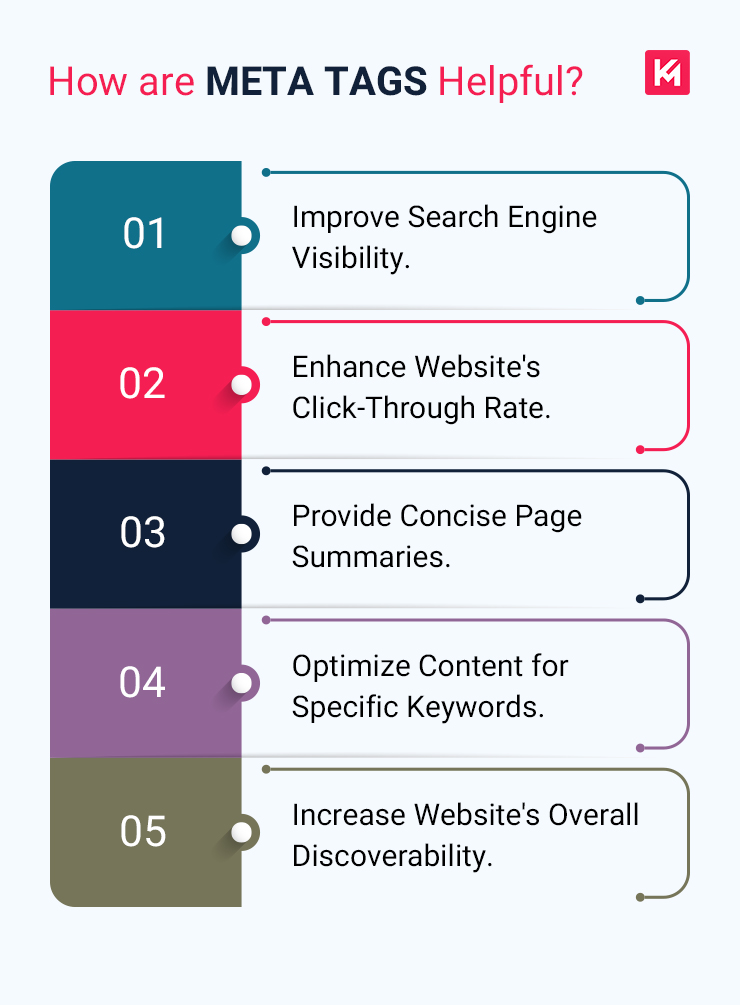
Myth 3: “Link building is no longer relevant.”
Link building was, is, and will continue to be an essential aspect of SEO. However, the focus has shifted from quantity to quality. Google believes that “making fewer links of high quality is preferable to making tons of links of low quality.”
Fact: Google prioritizes websites that actively work on maintaining their backlink profile. This not only involves creating new backlinks but also monitoring and disavowing previous backlinks that are no longer relevant or useful.
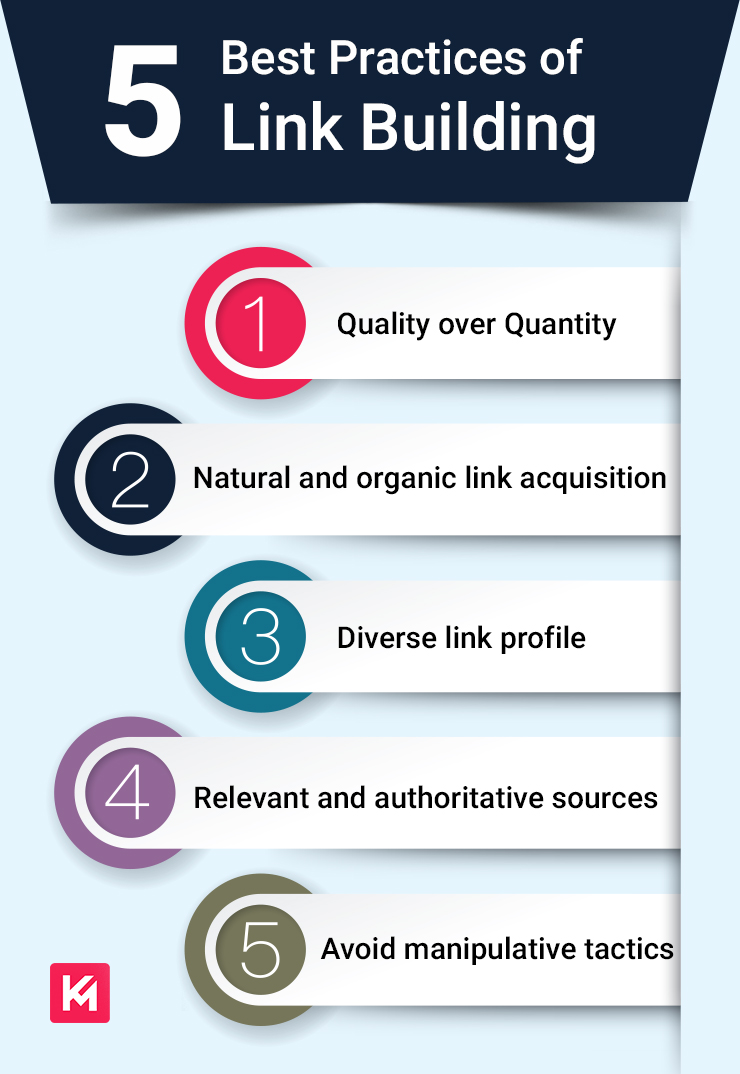
Myth 4: “Social media signals have a direct impact on SEO.”
It is believed that the efforts leveraged on social media have a direct impact on SEO rankings. However, this is not the case.
- Social media helps websites in attracting relevant traffic.
- It is a great platform for promoting your content.
- Social Media is helpful for video content viral.
Fact: Social media does not directly influence search engine rankings. It can serve as a medium to drive organic traffic. However, focusing solely on social media is not enough to improve rankings, as it is not the sole determinant. Social media’s contribution to elevating rankings is only around 2 to 10%.
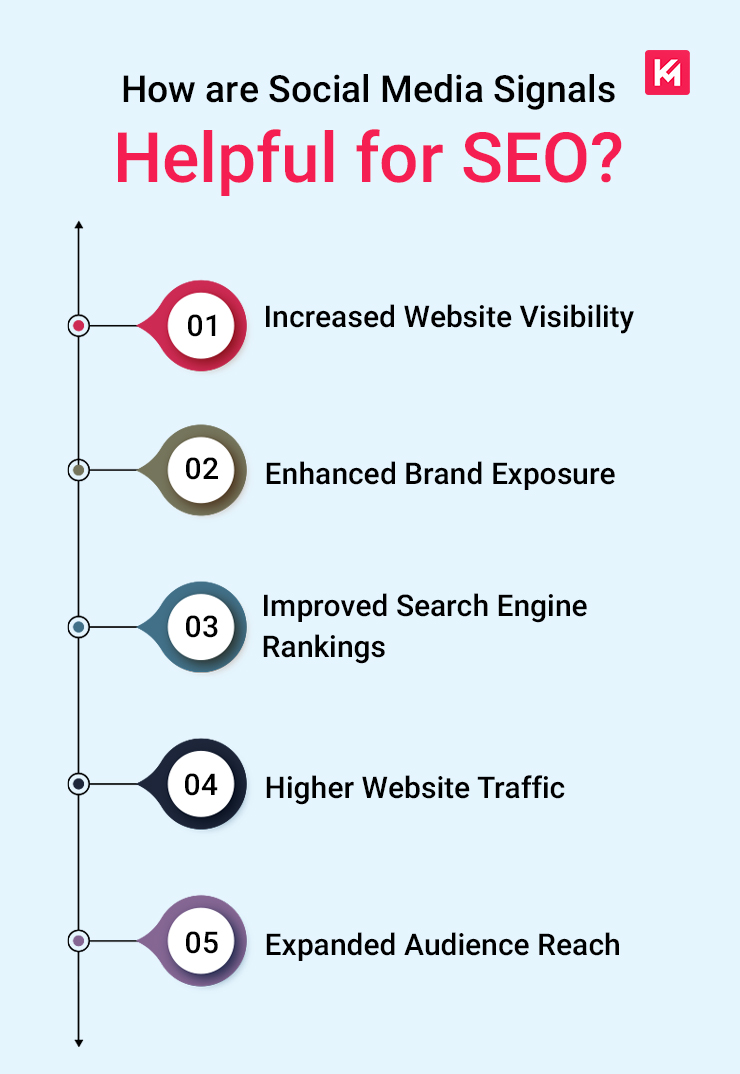
Myth 5: “Paid advertising improves organic search rankings.”
Running PPC campaigns is not going to directly influence organic SERP rankings of your websites. However, paid advertising can complement your SEO efforts by increasing brand awareness and attracting more traffic, which may indirectly benefit your organic rankings. Your PPC campaigns should be mobile friendly.
Fact: PPC campaigns bring paid traffic that is not included in the organic traffic. Organic rankings are brought about by:
- High-quality Content
- Strong Backlink Profile
- Strong User Experience
Myth 6: “SEO is a one-time effort.”
SEO is an ongoing process that requires continuous monitoring, analysis, and optimization. Search engines regularly update their algorithms, and user behavior evolves over time. Staying ahead of these changes and adapting your SEO strategy accordingly is vital for long-term success.
Fact: SEO is not a “Set-It-Leave-It Approach.” You can’t expect your SEO Campaign to work on its own. You have to continually make an effort to witness the results.
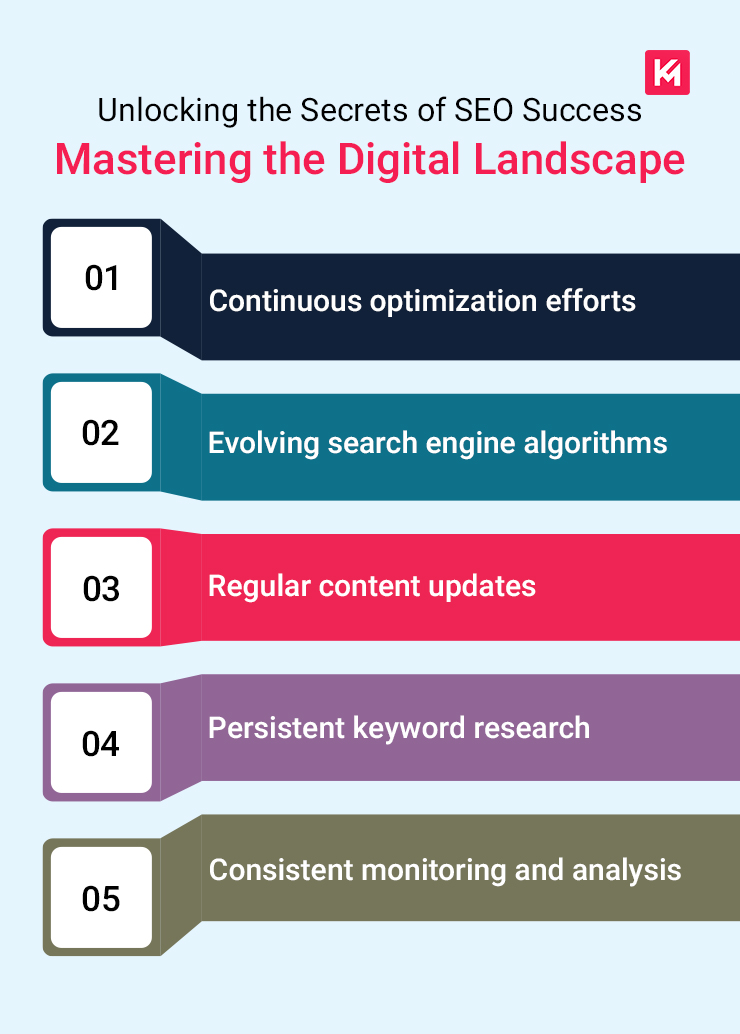
Myth 7: “More indexed pages guarantee higher search rankings.”
While having more indexed pages can provide more opportunities for your website to appear in search results, quantity alone does not guarantee higher rankings. Quality content and a well-structured website architecture are key factors that search engines consider when ranking web pages.
Fact: Google does not believe in the concept of high QUANTITY. It has started believing in the concept of Quality. Google will never prioritize your website if it has tons of indexed pages that contain poor content. But you will gain a significant favor from Google if you have fewer indexed pages, but those pages contain high-quality content in terms of relevancy and accuracy.
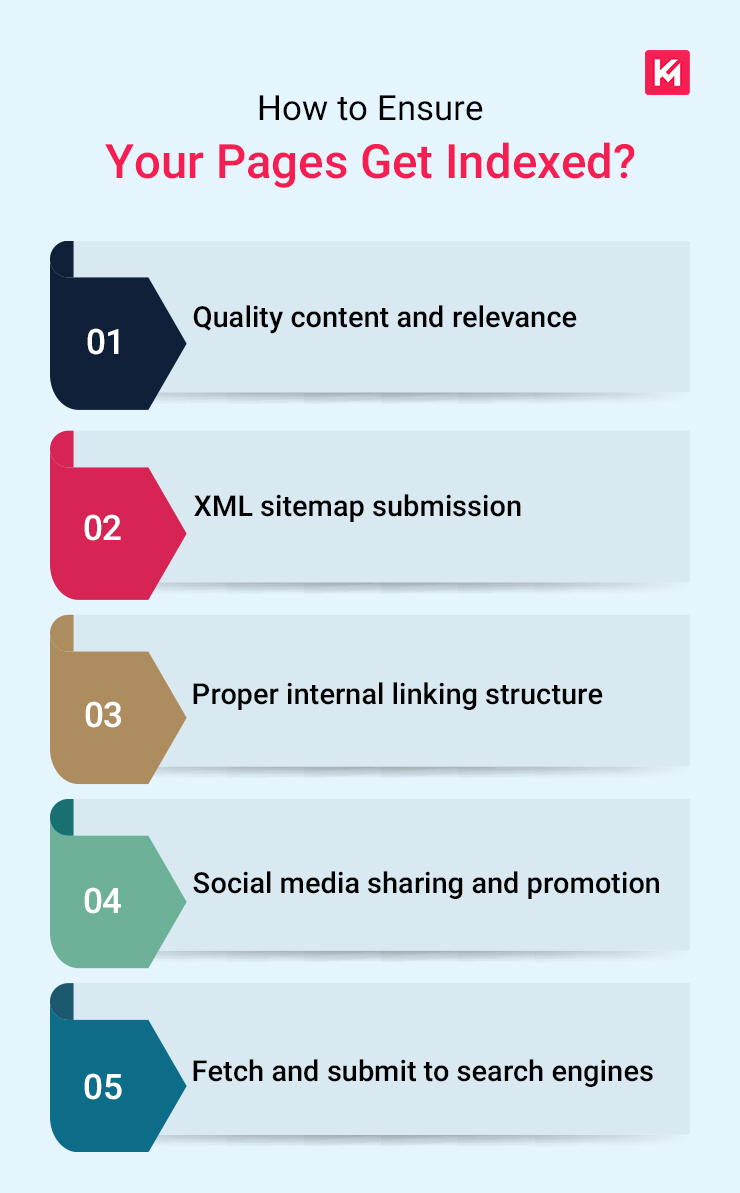
Myth 8: “The higher the keyword density, the better.”
Overstuffing your content with keywords not only makes it appear unnatural to readers but can also lead to keyword cannibalization. Instead, focus on using keywords strategically and naturally within your content, ensuring a seamless user experience.
Fact: Google is strictly against keyword stuffing. High keyword density is equivalent to keyword stuffing, which is a malicious practice. You can’t justify it by hiding keywords in the background to keep the user experience intact. Google’s Crawler is not a simpleton. It is much more clever than you can think.
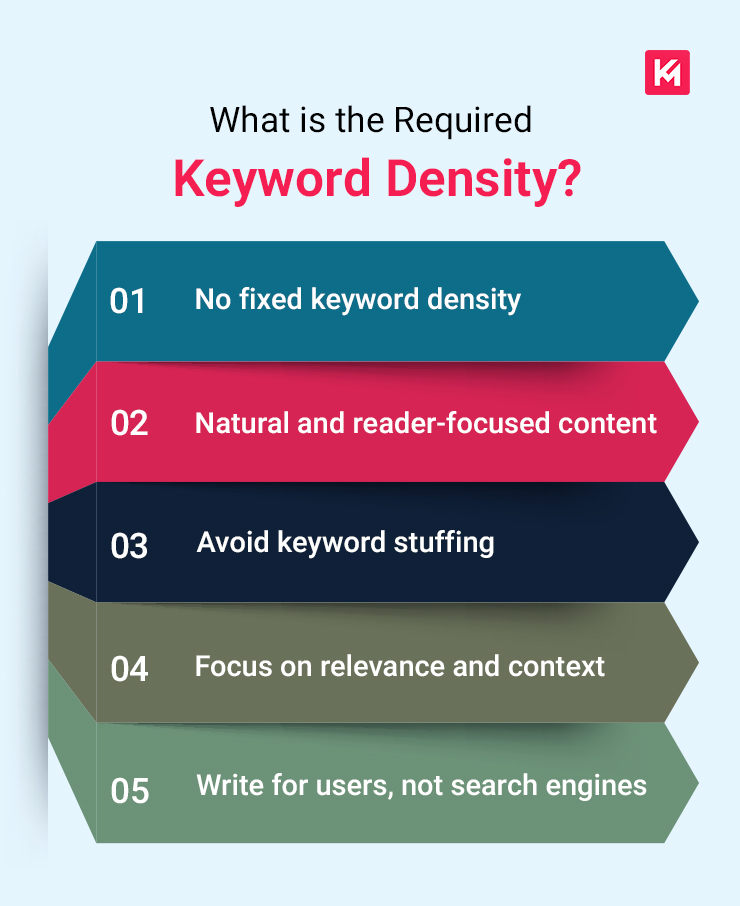
Myth 9: “SEO is all about ranking number one.”
While achieving the top position in search results is desirable, it’s not the sole measure of SEO success. Okay, answer me – What if you are ranking Number #1, but you’re not gaining significant organic traffic and reaching a lead generation rate? So, how can SEO be all about ranking number one on SERP?
Fact: Apart from ranking no. #1 on Google, SEO is about user engagement, conversion rates, and overall website performance.
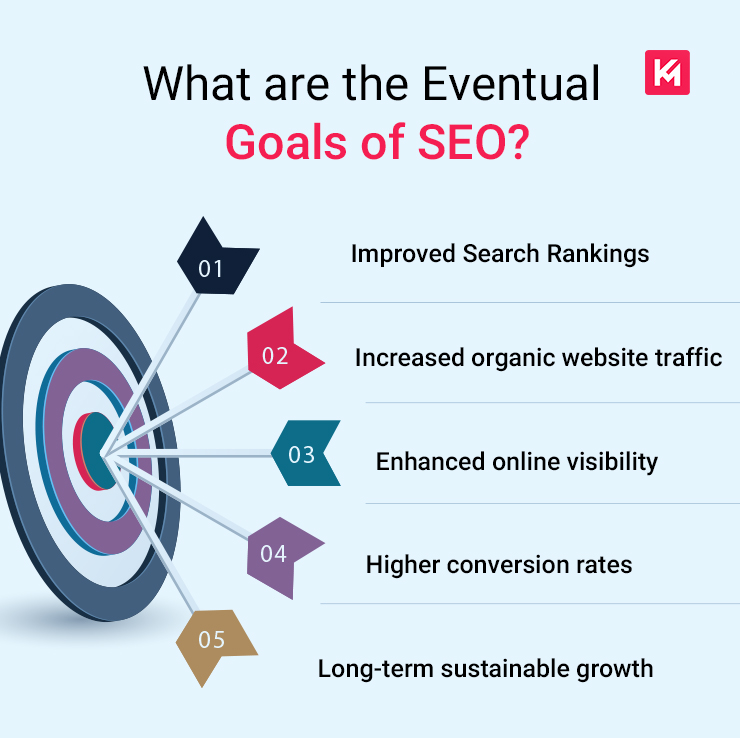
Myth 10: “SEO guarantees immediate results.”
You can’t expect SEO to make you witness results within days or weeks. It is a patient process. It usually takes up to 6 months for SEO campaigns to deliver results. Let me make it clear to you – SEO is all about experimentation. You can’t expect the same experiment to work for you, which has worked the previous time. Every time, you need a different strategy because the goals and objectives of all clients are different. Thus, a tailor-made SEO strategy is needed.
Fact: If an SEO executive or SEO agency is guaranteeing to deliver the results within one month, don’t fall into the trap. They’re saying this just to win you as a client.
Conclusion
Since now you know which SEO practices are effective and which are just myths, frame your SEO strategies cleverly because there are lot of search engine ranking factors. Don’t be crazy for myths; they’re not going to give you any beneficial results. Follow tested and tried SEO techniques, and you will guaranteedly obtain results that will work for a long time.

